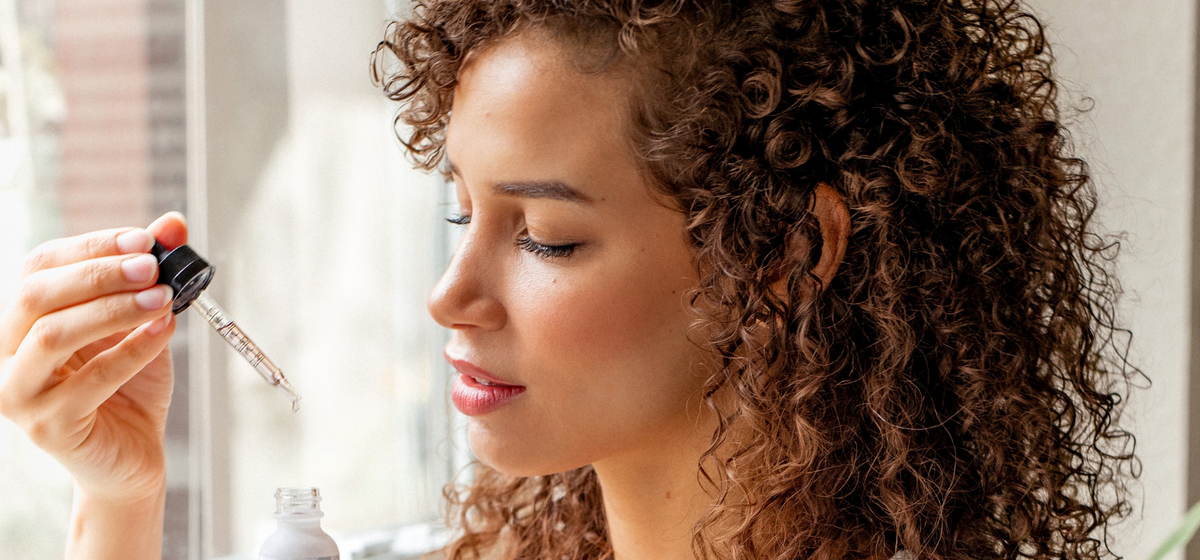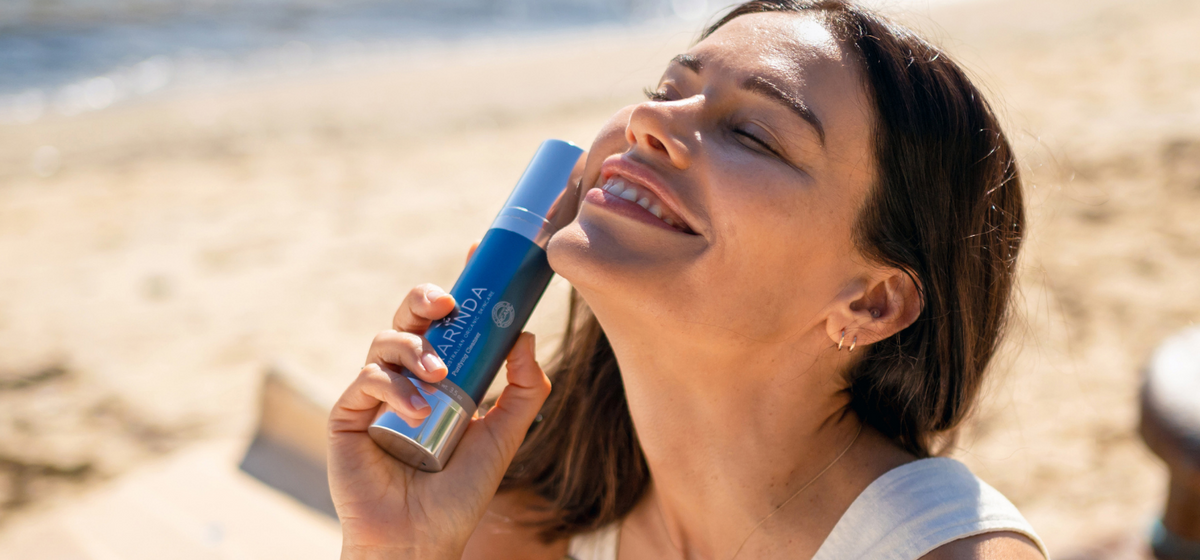Is Your Skin Dry Or Dehydrated? Yes, There’s A Difference!

One of the biggest skin mistakes you can make is thinking dry skin and dehydrated skin are the same thing - they’re actually two separate issues.
Let’s take a look at dry vs dehydrated skin and why each needs its own type of treatment to restore skin back to a happy, healthy state.
The difference between dehydrated and dry skin
Put simply, dry skin is a skin type where the skin is lacking oil (dry skin produces less sebum) while dehydrated skin is a skin condition where skin cells are lacking water. All skin types can become dehydrated, even oily skin.
How do you know if your skin is dry or dehydrated?
This can be a little tricky, as some of the symptoms of dry and dehydrated skin are similar.
Dehydrated skin is caused by several external and lifestyle factors that can reduce the water content in your skin including the weather, air conditioning (too hot or too cold), diet and alcohol consumption.
Common signs your skin is thirsty and desperate for water? Redness, inflammation, and congestion. Skin can also look dull and fine lines will seem more pronounced.
A quick way to see if you have dehydrated skin is to pinch your cheek. If your skin wrinkles and doesn’t quickly return to its place, it’s likely you’re dehydrated.
Dry skin can be red and inflamed too, but it's also flaky and itchy, especially around the eyebrow area and the corners of the nose and mouth. A tight, uncomfortable feeling also presents with dry skin types.
Knowing whether your skin is dry or dehydrated means you’ll be able to choose skincare with the right ingredients to treat the issue.
For dry skin, you’ll need ingredients that help seal moisture into the skin while dehydrated skin needs ingredients that will increase the hydration (water) level of skin cells.
Moisturiser vs Hydration (Humectants | Emollients | Occlusives)
Moisturising and hydrating ingredients both play key roles in restoring dehydrated and dry skin back to health, but they go about it in different ways.
Hydrators help to bring water to the skin by using humectants.
Humectants draw water from the air to the skin.
They are ingredients that attract water like a magnet from the atmosphere and the deeper layers of skin and draw it to the skin surface, helping keep it hydrated.
Hydrating products and ingredients work to increase the amount of water in the skin cells.
Some examples of natural humectant ingredients include; honey, aloe vera, lactic acid, and superstar hydrator - hyaluronic acid.
Moisturiser on the other hand, works to keep the moisture sealed into the skin. It prevents moisture from evaporating excessively off the surface of the skin in a process called transepidermal water loss.
Although transepidermal water loss is a natural process, too much moisture evaporating exacerbates the symptoms of dry skin.
Moisturisers contain occlusive and emollient ingredients to help seal the moisture into the skin.
Occlusive ingredients form a protective layer on top of the skin to seal moisture in. They are usually made up of large molecules, which means they have difficulty sinking into the skin. Instead, they sit on the surface, forming a seal to prevent moisture escaping.
Examples of natural occlusive ingredients include; plant oils and natural butters high in oleic acid such as olive, avocado, rice bran, macadamia, castor, and soybean oil and shea and cocoa butter. Lecithin and allantoin are also occlusive agents.
Emollient ingredients also work to keep skin moisturised. They don’t provide additional moisture to skin, instead, emollients work by ‘filling in’ cracks in the skin surface to prevent water evaporation.
A few examples of natural ingredients with emollient properties include almond oil, sunflower oil, olive oil, avocado oil, hazelnut oil, jojoba oil, rosehip oil, apricot kernel oil, and natural waxes such as unrefined beeswax, shea butter and cocoa butter.
The right skincare to treat dehydrated skin
Dehydrated skin cells need a big drink of water! Focus on using products and ingredients that deliver moisture deep into the layers of skin.
Serums with hydrating ingredients are an effective way to deliver hydration to thirsty skin as their smaller molecular structure is able to penetrate deeper into the layers of skin.
In particular, serums containing hyaluronic acid are an excellent choice for dehydrated skin.
Hyaluronic acid is a super skin hydrator with the ability to hold 1000x its weight in water. It’s a natural humectant, as mentioned earlier, and draws moisture from the air and the deeper layers of skin to plump and hydrate the skin cells on the surface.
This helps smooth fine lines and restores a dull complexion to a healthy, vibrant one.
If you’re dealing with dehydrated skin, we recommend trying our vegan Rejuvenating Serum.
Containing hyaluronic acid it delivers a big drink to parched skin and a blend of botanical ingredients have been expertly selected for their collagen stimulating and brightening abilities.
The right skincare to treat dry skin
To tackle dry skin, focus on choosing skincare with occlusive and emollient properties that work to seal moisture in and restore a cracked, damaged skin barrier.
Natural oil blends and moisturisers containing natural oils with the extra mile to treat dry skin. Not only do they form a layer on the skin that holds keeps moisture sealed in, the right oils help nourish a compromised skin barrier back to health.
Natural ingredients with occlusive properties, like shea and cocoa butter, pair brilliantly with oils to create a dry skin dream team.
To ease dry skin issues, we recommend our Nourishing Moisturiser. A blend of natural botanical oils including (Sunflower) Seed Oil and Jojoba Oil pair with shea butter to create a holistic treatment for dry skin; sealing in moisture while restoring skin barrier resilience.Leave a comment
Comments will be approved before showing up.
Also in News

3 Big Skincare Mistakes You Don't Want To Make

Active Ingredient Percentages: What You Need to Know


